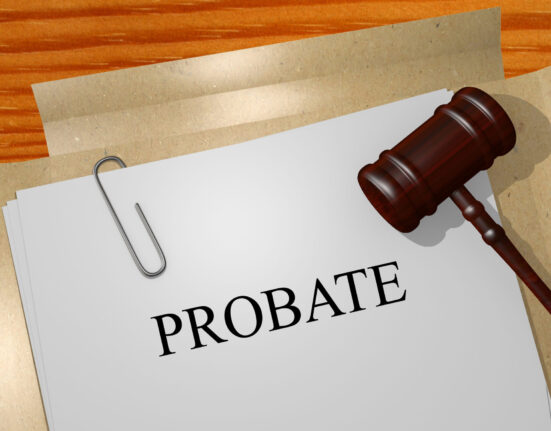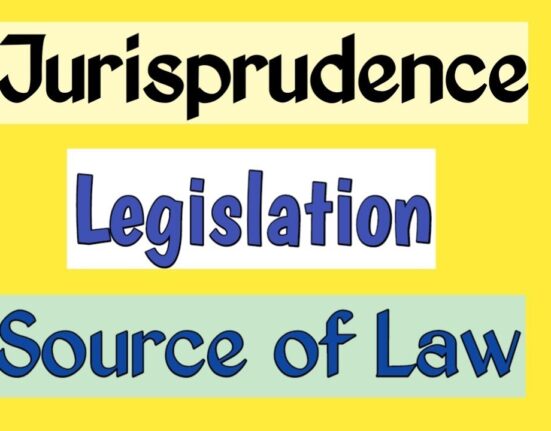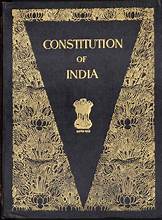Kritika Dudpuri, a first-year student of O.P. Jindal Global Law School has written this Article on “Functions of the Election Commission of India”.
Introduction
“We, the people of India, having solemnly resolved to constitute India into a Sovereign, Socialist, Secular Democratic Republic.”[1] With the adoption of the constitution of India on November 26, 1949, these words became embedded in the founding stone of the making of one of the biggest democratic countries in the world- India. There were numerous debates that were held around choosing the correct set of words to represent the essence of what the country wanted to embody. However, everyone mutually agreed only upon Sovereign, Socialist, Secular, Democratic, and Republic. To ensure the democratic element of our constitution, free and fair elections have been held regularly as per the principles enshrined in our constitution, electoral Laws, and System.[2] With the holding of our Elections, The Election Commission of India came into existence in 1950. It was established to ensure the fairness and efficiency of elections in the country.
The Election Commission
The Election Commission is a permanent autonomous constitutional authority. Article 324 of the Constitution establishes The Election Commission. As per subpart (2) of the article, the Election Commission shall consist of the Chief Election Commissioner and other election commissioners as the president from time to time may decide.[3]Originally the commission was composed of only the Chief Commissioner but now as per the recent changes, there are two more commissioners in addition to the Chief Election Commissioner. At present Sh Rajiv Kumar is the Chief Election Commissioner. Sh Anup Chandra Pandey and Sh Arun Goel are acting as additional Election commissioners. The President appoints the Commissioners on the recommendation of the Council of Ministers, headed by the Prime Minister.
On 2nd March 2023 however, a five-judge Constitutional Bench of the Supreme Court unanimously ruled that a high power committee consisting of the Prime minister, the leader of the opposition, and the Chief justice of India should pick the Chief Election Commissioner and the other Election Commissioners. [4] Moreover, The Commissioners have a tenure of six years or up to the age of 65 years, whichever is earlier. However, Only the Parliament can remove the Commissioners from office through impeachment. One of the irregularities that surfaced with the making of the Election Commission a multi-member body was that while the tenure of the office of the Chief Election Commissioner stood protected, the same was not the case with the other election commissioners[5], as also pronounced in SS Dhanoa v Union of India[6] case by the honorable Supreme Court of India.
All the Election Commissioners receive salaries and other privileges on an equal footing, except for the security of their tenure. The commission holds regular meetings and maintains the transparency of its business through the regular circulation of the papers.
In Mohinder Singh Gill & Anr. Vs The Chief Election Commissioner and Others[7], the Supreme Court ruled that “Article 324, on the face of it, vests vast functions in the Commission, which may be powers or duties, essentially administrative, and marginally, even judicative or legislative. The Constitution provides the Election Commission of India with the power of direction, superintendence, and control of elections to parliament, state legislatures, the office of the president of India, and the office of the vice-president of India. [8] The powers of the Election Commission broadly fall under three categories- Advisory powers, administrative powers, and quasi-judicial powers. Additionally, the Election Commission has a few judicial powers. These can only be exercised with the permission of the courts.
Administrative Powers of the Election Commission of India
- The Election Commission is responsible to appoint different officials to ensure free and fair elections. Electoral officer: The Election Commission in consultation with the state government or the Union Territory Administration nominates the electoral officer to supervise the election work in the respective state or the Union Territory. District Election Officer- In consultation with the State Government or the Union Territory administration appoints him to supervise election work in the district. Returning officer: In consultation with the State Government or the Union Territory Authority administration appoints the returning officer to conduct the elections in the parliamentary or assembly constituency. Additional returning officers to assist the working of the Returning Officer may also be elected for better efficiency. Electoral Registration Officer: The Election Commission appoints an Electoral Registration Officer for the preparation of electoral rolls for parliamentary or assembly constituencies.
- It can demarcate the territories and set up different constituencies for efficient voting.
- It registers all qualified voters and organizes and amends electoral rolls.
- It decides and releases the schedule of the elections and even issues fresh elections. If there are instances of rigging, booth capturing, violence, and other such factors it hinders the impartiality of the held election. On May 8, 2018, the Election Commission of India declared the Tripura West polls void. The other opposition polling parties raised allegations about the occurrence of booth capturing and violence. [9]
- To register political parties for the purpose of elections and grant them the status of national or state parties on the basis of their poll performances. It can even disqualify political parties from participating in the elections. In August 2022, the Election Commission of India sent in the recommendation for the disqualification of the Jharkhand Chief Minister for holding an office of profit. [10
- It even keeps a check on the campaigning expenditure done by the different political parties. In a virtual meeting held between the Representatives of the Political parties, the chief secretary, DGP, the State Police Nodal Officer, the CEO Manipur, and the Election Commission of India, the commission reiterated that it has zero tolerance for the misuse of money or muscle power or partisan behavior of State machinery vitiating free and fair elections. Former Chief Election Commissioner Shri Sushil Chandra underscored that strict action would be taken against such erring officials.[11]
- In Ram Deo Bhandari v. Election Commission[12], the honorable supreme court held that the Election Commission could take all necessary steps to ensure free and fair elections. It implements norms and the Code of Conduct to ensure the same.
- The Commission can repress the results of opinion polls if it deems such action fit for the cause of democracy.
- If at any time there are disputes or queries arising due to the elections of the parliament or state legislatures. The Election Commission has the authority to set up tribunals for the clarification of all such doubts.
Advisory Power of the Election Commission of India
- As per the constitution of India, the Election Commission of India also extends its advisory jurisdiction to the President. Especially, in matters relating to the post-election ineligibility of sitting members of the parliament and the different state legislatures. Recently Rahul Gandhi, the former president of the Indian National Congress was disqualified from the Lok Sabha by the Election Commission of India. The authorities removed him because he violated the Model Code of Conduct (MCC) during the Elections in 2019.[13]
- The Election Commission also empowers governors of different states to seek its advisory powers regarding the disqualification of sitting members in state legislatures after the election.
- During the execution of the president’s rule due to an emergency in a certain state as per Part XVIII of the Constitution, the Election Commission advises the president whether the particular state is in the condition of holding elections amidst the emergency or if the continuance of emergency should be executed for another year.
- Additionally, the cases of persons found guilty of dishonest practices at elections which come before the Supreme Court and High Courts are also referred to the Commission for its opinion on the question as to whether such person shall be disqualified and, if so, for what period. The judgment of the Commission in all such matters is binding on the President or, as the case may be, the Governor to whom such opinion is tendered.
- The Commission has the power to prohibit a candidate. If In case the candidate has failed to lodge an account of his election expenses.
- The Commission has also the power to remove or reduce the period of such disqualification under the law.
Directive Power of the Election Commission of India
The Election Commission of India released a notification in the year 2007[14] issuing to various authorities different directives regarding their work during the elections. It directed the local Thana Officer( SHO) and other village authorities to identify different threats to the villagers and the constituency which could affect the impartiality of the elections. Election Commission also directed the DEO and SP to take frequent tolls around the village. Also, it tells people about the steps taken to ensure free and fair elections to induce confidence in the citizens. The Election Commission can issue such directives so as to ensure enhanced and safer functioning of the election process.
Quasi-Judicial Powers of the Election Commission of India
The constitution of India also gives some quasi-judicial powers to the Election Commission of India.
- It has the authority to solve disputes about the recognition of the political parties contesting in the elections.
- The Constitution gives it the power to serve as a court. If in case a dispute arises about the recognition of the symbol of a political party.
- It can disqualify contestants who fail to file timely accounts of their political party’s election expenses as per the law. The state election commission of Maharastra disqualified a village panchayat member and the elected sarpanch for five years. When he delayed the submission of his election expenses by fifteen days.[15]
The Commission has taken several new initiatives in the recent past. Notable among these are, a scheme for use of State-owned Electronic Media for broadcast/telecast by Political parties, checking criminalization of politics, computerization of electoral rolls, providing electors with Identity Cards, simplifying the procedure for maintenance of accounts and filling of the same by candidates. Furthermore, The Election Commission has taken various measures to ensure strict compliance with the Model Code of Conduct. It provides a level playing field to contestants during the elections.[16]
Checking the Criminalisation of Politics
The criminalization of politics implies the participation of people with criminal backgrounds or pending criminal cases against them. Also, in elections and contesting for seats in the parliament or the state legislative assemblies. As per the data combined by Amnius Curae. Until December 2021, there were a total number of 4984 criminal cases involving legislators from different states in various courts. The Election Commission has raised concerns over this issue and also has taken several steps to prohibit it. The poll panel told the apex court that in its “Proposed Electoral Reforms, 2016”. It reiterated its 2004 recommendation that people charged with cognizable offenses are punishable with imprisonment of at least five years. Also, The Election Commission should debar candidates from participating in the elections if charges have been framed against them and if cases have been filed at least six months prior to the election.[17]
It also submitted that even though the Election Commission was actively taking precautions to prevent the issue, any more steps taken would require legislative amendments which are beyond the scope of the Election Commission of India. Section 8 of the Representation of Peoples Act 1951 does mention the disqualification on conviction for certain offenses. Where the individual convicted with a jail time of more than two years cannot stand in the election for six years after the jail time has ended. However, there is no law currently that bars individuals who have pending criminal cases against them.
Recommendation to link Aadhar:
Recently, the Election Commission of India ( ECI) proposed to link the electoral rolls with the Aadhar cards of the voters with the view of curbing the menace of multiple enrolments of the same person at different places. This would also permit the Election Commission to track migrant workers and improve their participation in the elections. Furthermore, linking Aadhar with biometrics that cannot be replicated is expected to prevent voter fraud.
Electronic Voting Machines ( EVMs)
Electronic Voting Machine is voting using electronic means to either aid or take care of the casting and counting votes.[18]In 1989, the Election Commission developed India’s indigenous Electronic Voting machines in alliance with two central government undertakings. Which are the Electronics Corporation of India (ECIL) and Bharat Electronics Limited (BIL). Moreover, The Goa State Assembly Elections of 1999 marked the first usage of these EVMs.
Recently ECI announced its plan for remote voting for domestic migrants saying that it has developed a prototype Multi-Constituency Remote Electronic Voting Machine (RVM) that can handle multiple constituencies from a single remote polling booth. The migrant voter would thus need not travel back to his/her home district to exercise his/her franchise of voting. “The initiative, if implemented, can lead to a social transformation for the migrants and connect with their roots”, it adds.
Also Read: Election Commission Of India vs Saka Venkata Rao: Case Analysis, Click Here!
[1] The Preamble of the Indian Constitution
[2] https://eci.gov.in/about/about-eci/the-setup-r1/
[3] Article 324(2)
[4] The Indian Express, How are the CEC and ECs appointed, and what has the Supreme Court order changed?
[5] SS Dhanoa v. Union of India (1991) 3 SCC 567, 584
[6] Ibid
[7] 1978 AIR 851, 1978 SCR (3) 272
[8] Article 324 (1)
[9] Election Commission declares polls in Tripura West seat void, orders re-polling in 168 polling stations, Available at https://www.hindustantimes.com/lok-sabha-elections/election-commission-declares-polls-in-tripura-west-seat-void-orders-re-polling-in-168-polling-stations/story-HAN6h9nr3eVEfxQ85ziJKM.html
[10] https://www.ndtv.com/india-news/hemant-soren-disqualified-what-are-jharkhand-chief-ministers-options-now-3289163
[11] https://pib.gov.in/PressReleaseIframePage.aspx?PRID=1787822
[12]1995 AIR 852, 1995 SCC (2) 153
[13] https://timesofindia.indiatimes.com/readersblog/mera-anubhav/analyzing-the-disqualification-of-rahul-gandhi-what-it-means-for-indian-politics-52069/
[14] No.464/INST/2007-PLN-I
[15] https://theprint.in/india/no-remedy-of-appeal-lies-against-order-of-state-election-commission-or-its-delegatee-sc/795286/
[16] https://eci.gov.in/about/about-eci/the-setup-r1/
[17] https://legal.economictimes.indiatimes.com/news/industry/have-actively-taken-steps-for-decriminalisation-of-politics-ec-to-sc/99391232
[18] https://eci.gov.in/evm/
![]()







Leave feedback about this